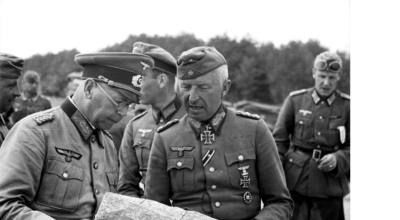Trailblazing the Frontier of Computing: The Legacy of Gul Agha
Gul Agha: Pioneering the Frontier of Concurrent and Distributed Computing
In the vast landscape of computer science, few figures stand as tall and influential as Gul Agha. Renowned for his groundbreaking work in concurrent and distributed computing, Agha has left an indelible mark on both academia and industry. His innovative research has not only shaped the theoretical foundations of these fields but has also paved the way for practical applications that power the backbone of modern computing systems.
Born in Pakistan, Gul Agha embarked on his journey into the world of computer science with a thirst for knowledge and a passion for solving complex problems. He earned his Bachelor's degree in Electrical Engineering from the University of Engineering and Technology, Lahore, before venturing to the United States to pursue further studies.
Agha's academic pursuits led him to the prestigious Massachusetts Institute of Technology (MIT), where he obtained his Master's and Ph.D. degrees in Computer Science. It was during his time at MIT that Agha began to delve into the realm of concurrent and distributed computing, intrigued by the challenges posed by systems with multiple interacting components.
One of Agha's seminal contributions to the field came in the form of the Actor model, a theoretical framework for concurrent computation that he helped develop and popularize. Unlike traditional models of computation, which rely on explicit synchronization primitives such as locks and semaphores, the Actor model embraces a message-passing paradigm, where independent entities known as actors communicate asynchronously by exchanging messages. This elegant abstraction not only simplifies the design of concurrent systems but also fosters modularity and scalability, making it particularly well-suited for distributed environments.
Agha's work on the Actor model laid the groundwork for a multitude of research endeavors and practical implementations, ranging from programming languages like Erlang and Scala to distributed systems such as the Akka toolkit. His insights into the nature of concurrency have had a profound impact on the development of fault-tolerant, high-performance software systems, enabling them to handle the complexities of modern computing infrastructures with grace and efficiency.
Beyond his contributions to theoretical computer science, Agha has also made significant strides in bridging the gap between academia and industry. He has collaborated with leading technology companies and research institutions around the world, applying his expertise to real-world problems and fostering innovation in areas such as cloud computing, Internet of Things (IoT), and cyber-physical systems.
In addition to his research endeavors, Agha is also a dedicated educator, known for his engaging teaching style and mentorship of aspiring computer scientists. He has held academic positions at prestigious universities including the University of Illinois at Urbana-Champaign, where he currently serves as a professor in the Department of Computer Science.
As we look to the future of computing, the principles and methodologies championed by Gul Agha continue to resonate, guiding the next generation of researchers and practitioners towards new frontiers of discovery and innovation. His legacy serves as a testament to the transformative power of ideas and the enduring impact of those who dare to explore the uncharted territories of knowledge. In the ever-evolving landscape of technology, Gul Agha remains a beacon of inspiration, illuminating the path towards a more connected and resilient digital world.



